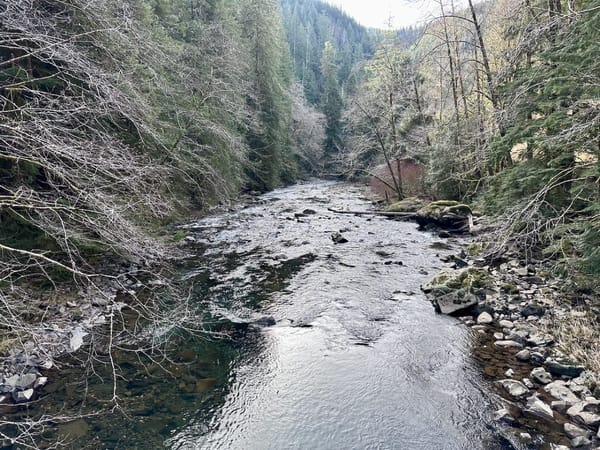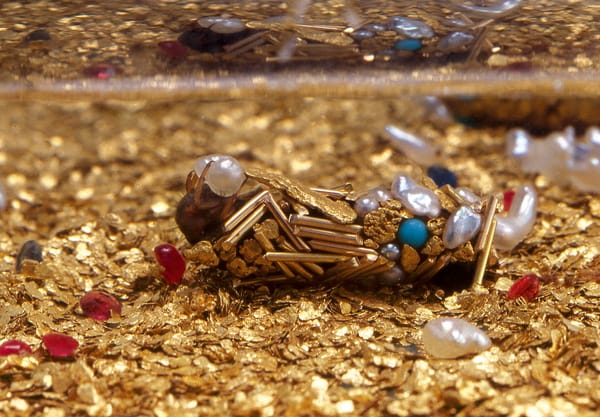Nirvana on the Deschutes: The salmonfly hatch with no hookups
Deciding to fish the salmonfly hatch on the Deschutes with hookless flies
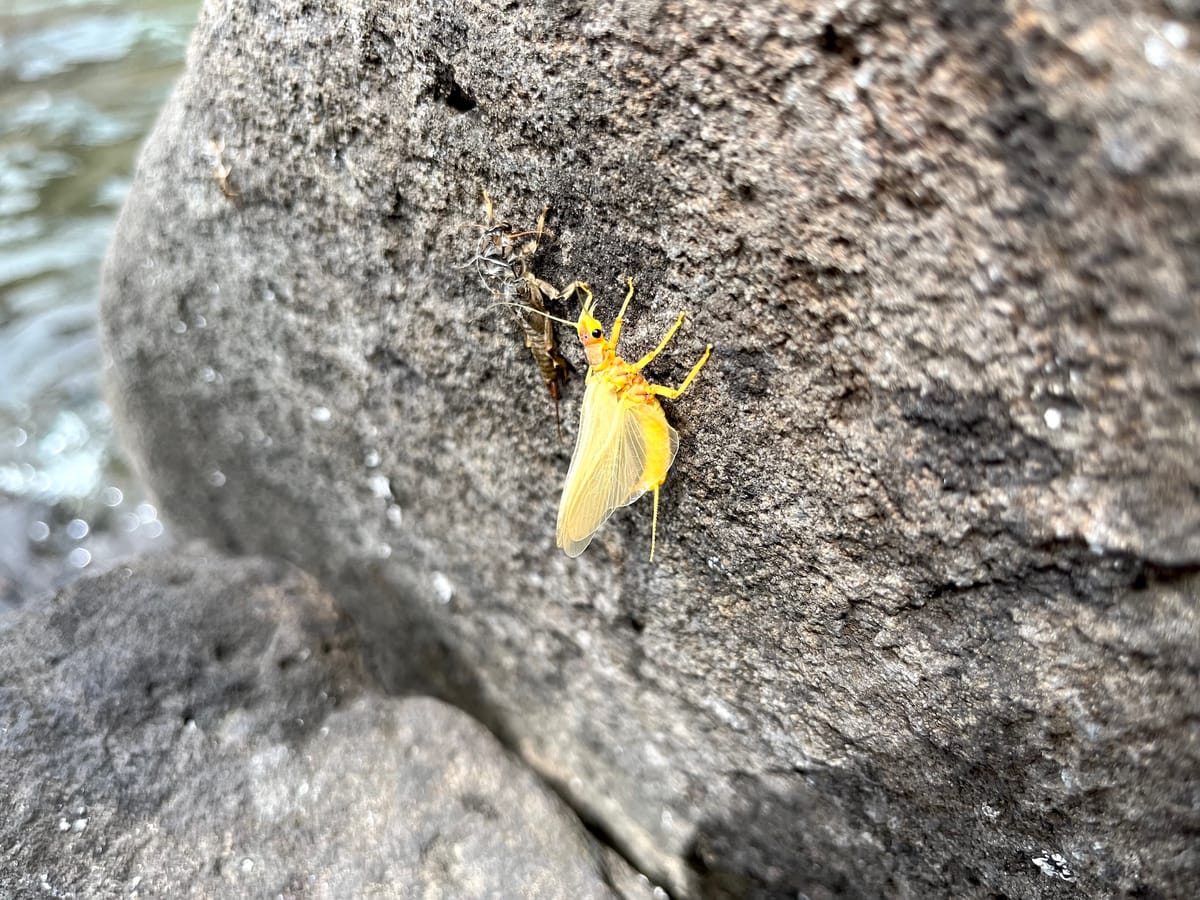
CFStraterrestrials:
The salmonfly hatch is in full gear on the Deschutes. It's the most wonderful time of the year on one of the best trout streams in Oregon.
If you're interested in fishing the hatch, hopefully you've made plans, or are joining us in Maupin in a couple of weeks at TroutFest to catch the tail end. Whatever you do, get out there.
Nick Wheeler's presentation at the Clackamas chapter of TU last week was great. He let a couple of tidbits loose, some of which I won't disclose here. But probably the most important is that you can't catch 'em from the couch.
Salmonfly? Stonefly? What's the difference? Are they even hatching? Because I don't see them flying off the river?
Deschutes Angler owner Amy Hazel breaks it all down, along with the latest report here.
Beyond hookup culture
I've fished the salmonfly hatch every year since I arrived in Oregon. Some years I hit it great, and it's lights out. Some years, I'm too early. Some years, I'm too late.
If you haven't fished it, or heard about it before, the salmonfly hatch on the Deschutes is a 3-4 week period where giant salmonflies (Pteronarcys californica) and golden stoneflies (Hesperoperla pacifica) arrive in force. They march off the bottom of the river, where they've been living for the last several years, up into the bushes, where they shed their skin, and then fly around mating and flop down atop the river dead.
This orgy of protein causes the normally surface-shy Deschutes redside—a wild strain of rainbow trout grown burly and football shaped by the Deschutes' intense currents and rapids—to abandon all modesty. Large fish lurk under every grassy tuft and overhanging branch, sometimes in very shallow water, to suck down every buggy snack that falls into the water.
It's a world-class hatch, and brings anglers from all over the world. CFSer Ana was out this week and in her trip report she told the Fishcord how she ran into a guy who is camping on the river for the next two weeks. That's the way to do it. (But, if you missed my notice above, go now. The hatch is happening now. Right now.)
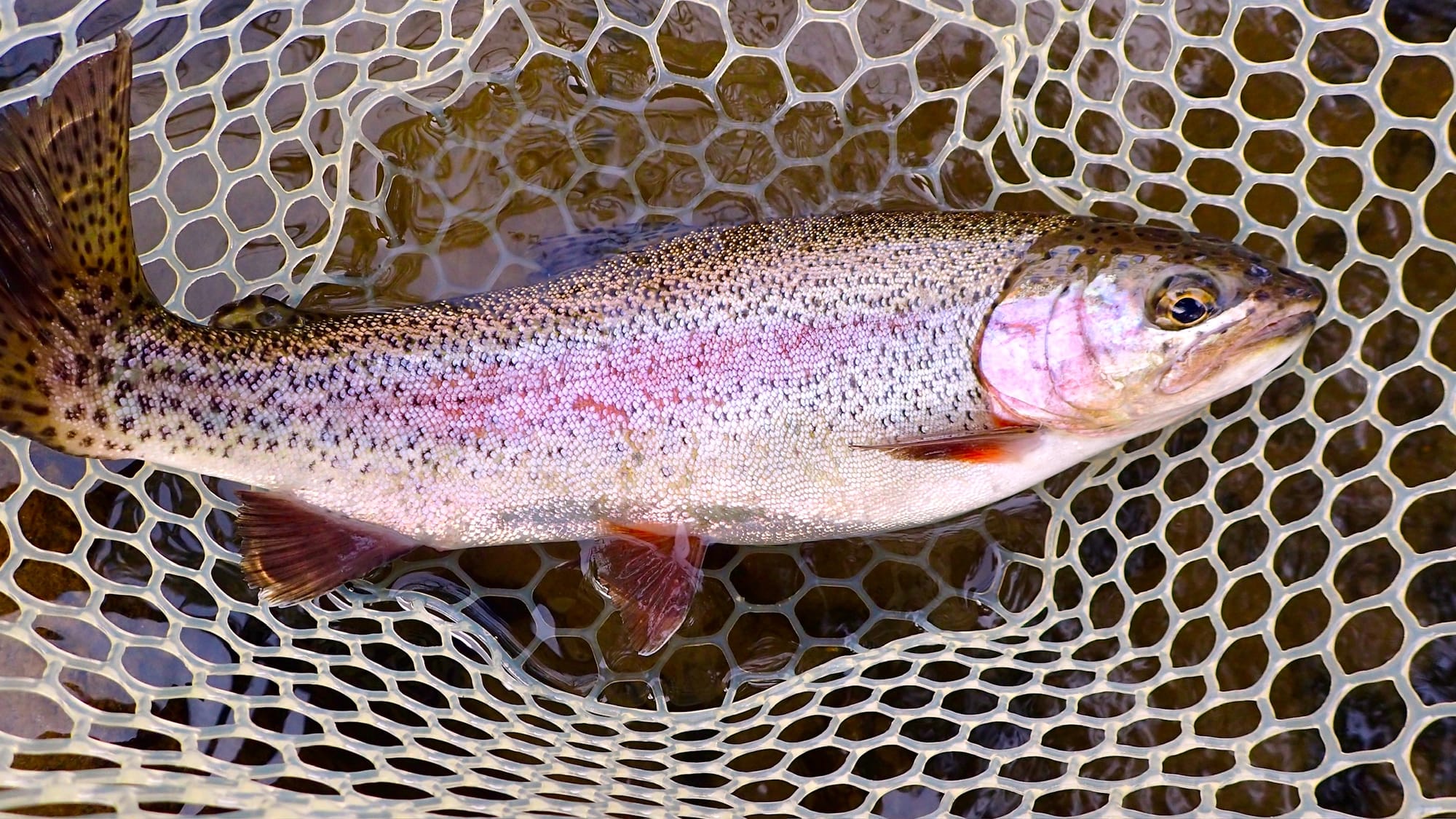
2022, the hatch with no hookups
One of the benefits of keeping a fishing logbook, as I've talked about before, is being able to flip back through specific time periods or stretches from years past.
This week I took a look back at historical Mays, and was reminded of all the different successes and frustrations I've had with this hatch on the Deschutes.
But one weekend stood out more than others, with a whole page of notes.
In 2022, I decided to fish the Deschutes salmonfly hatch with only hookless flies.
I'm not sure what spurred this experiment. I think it was reading a John Hazel remark about steelheading without hooks. Because he'd already caught so many. It made sense to me all of a sudden.
Fishing without a hook would make fly-fishing feel more like birdwatching. And, what better hatch to do it on than the world-famous salmonfly hatch, where the takes were aggressive and visible?
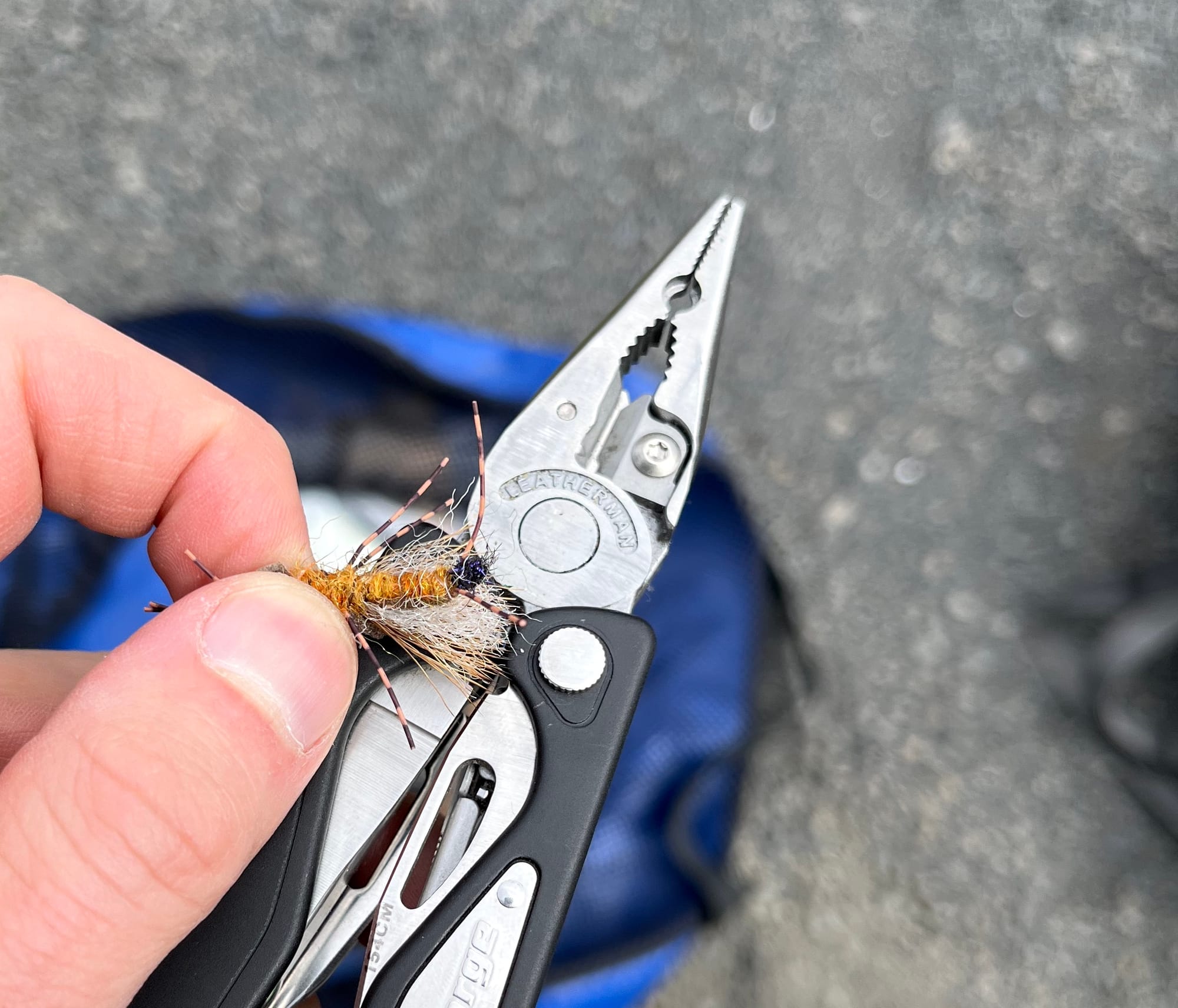
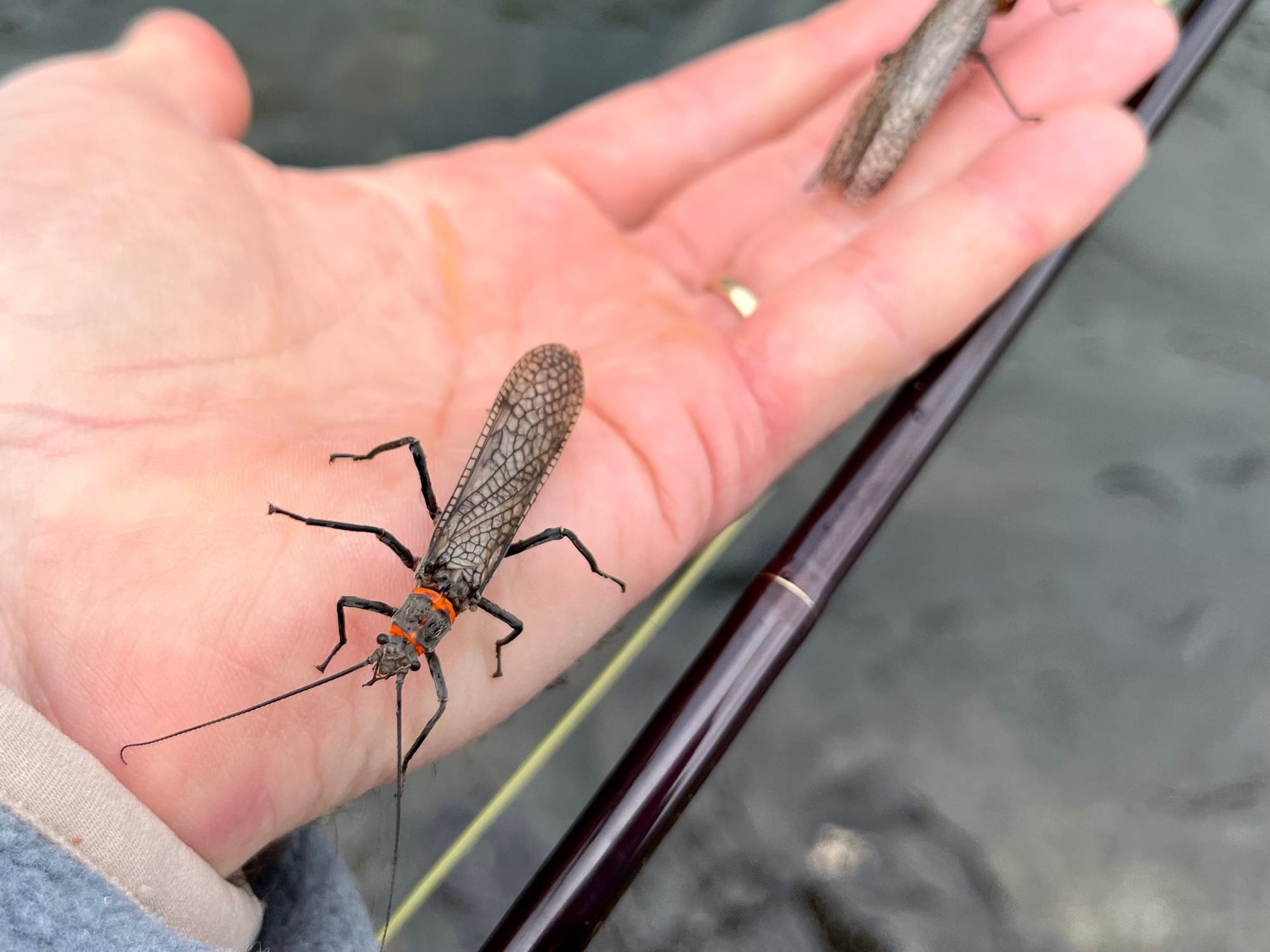
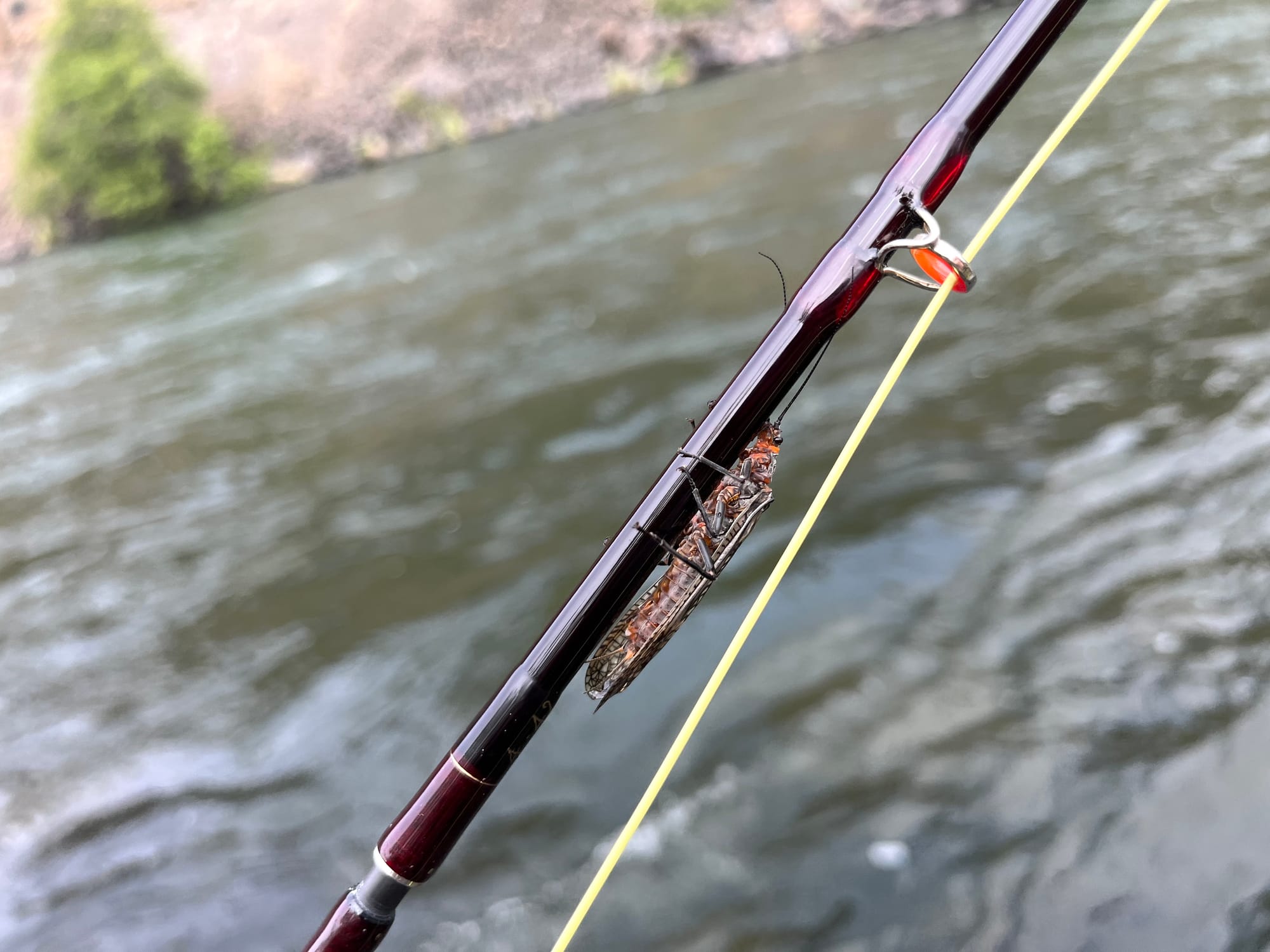
The plan meets with consternation
I was with my dad that weekend, and he laughed when I told him my plan. He looked at me like the village idiot.
"OOOOOOO-K," he said. "Good luck with that."
By which he meant, go ahead on your foolish experiment, but I will disavow anything resembling an endorsement.
So I cut the hook off a big golden stonefly dry, and then proceeded to—well, I'm not sure. It wasn't fishing. It sure wasn't catching. It was more like teasing, or tempting.
Fishing as finding
All of a sudden, it was more about observation than production, and that was freeing. There was an instant reduction in the pressure I was putting on myself. My desire to perform went away.
"Fishing" became only about 50% of what I was doing by the river. Taking a beat to watch bugs, or birds, or just how the river was flowing by became equally important.
I saw my favorite osprey couple, and spent a long time trying to figure out if they had a chick in their nest. I saw snakes and lizards. I fantasized about how much more room for binoculars and bird books and snacks I'd have in my bag, without fly boxes.
It was as if I had sent my inner accountant home early, and could just relax. Even though fly-fishing is a relaxing hobby, cutting the hook off my fly took it to another level. It was a way to give myself a break from trying so hard. I couldn't catch a fish if I tried, so why bother?
It was as if I had sent my inner accountant home early, and could just relax.
Fishing became about exploration to observe, not about exploration to exploit. The Deschutes, with its steep banks, suited itself well to this kind of viewing. You could see the fish come up and do their thing, hit the fly with all their might. And knowing that you didn't have to do anything to set the hook gave you those extra micro-seconds of time to pay attention. It was as if my slow-motion fish-watching camera got a 4k upgrade.
And oh, it was fun. I raised over 20 fish that afternoon. And without a hook, they all ate the fly and held on. Some took the fly down and kept at it while they shook their heads. It became a rodeo. How long can you stay aboard? Three, four, five seconds. Two head shakes. Three head shakes.
As the fish held the fly I held the vain hope that they'd keep fighting. That they wanted to be connected. All of them came off, of course, but that strange feeling of mutuality stuck with me. Those fish were still testing, trying to eat what I offered. The imitation game of fly-fishing still worked.
As the fish held the fly I held the vain hope that they'd keep fighting. That they wanted to be connected.
Would it have been as interesting with itty-bitty mayflies, and sipping rises? Part of the fun was fish crushing big flies. Would it have been as interesting on gentler water? If I were wading deeper, eyes closer to the plane? Maybe, maybe not.
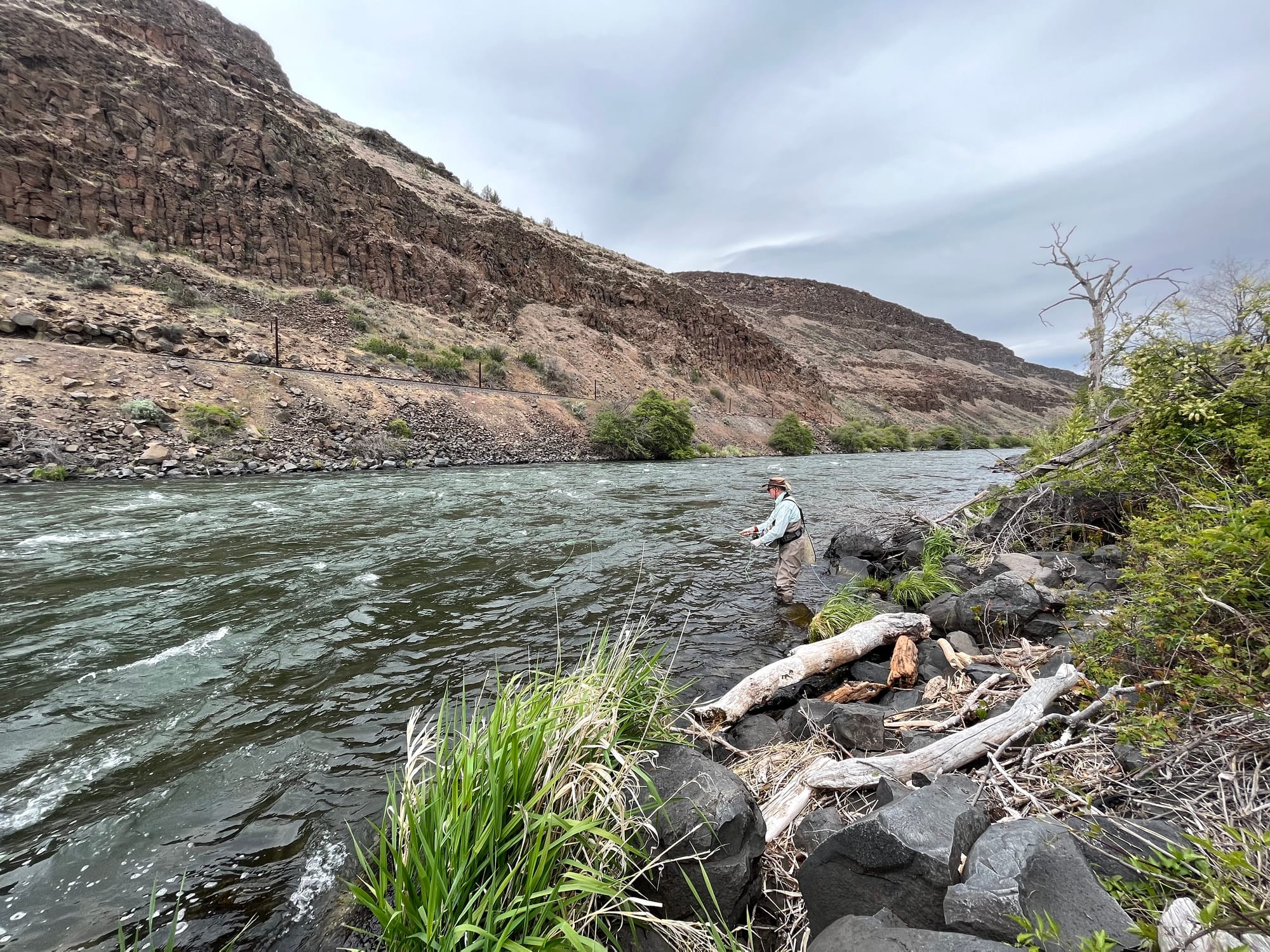
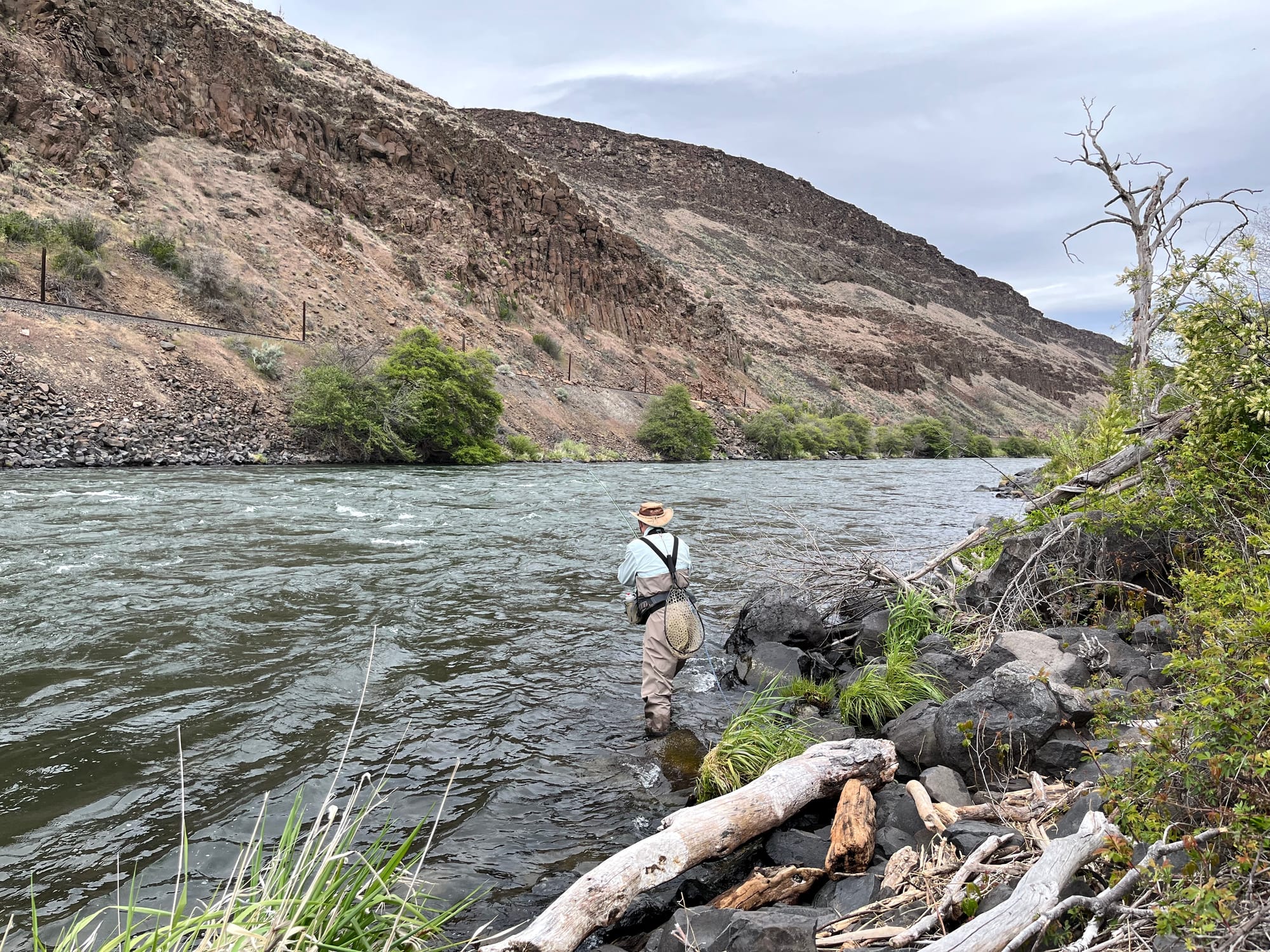
When we met back up later that afternoon, my dad was nymphing a rubberlegs through a likely slot, as is his style. He finds a place that looks good, and fishes it.
I suggested he go try dries in the place I'd been raising them. He was irritated at the prospect. "Leave me alone," he said. "I'm doing perfectly fine."
I wasn't sure if it was an asshole move, a kind of gloating, to share what I had learned, but I was excited.
One line from my fishing log is telling:
"Causal chain of 'Why?'s goes big fast with this method."
- Why have a reel on your rod?
- Why wear waders?
- Why go into the water at all?
- Why are we even here?
It reminds me of the acquaintance who ate too much acid and wound up at a big group table at a Denny's late at night, having been silent for hours, staring, searching for something, then suddenly standing up and declaring at the top of his lungs, "WHO AM I? WHAT AM I?" to a now-silent restaurant.
Too much pondering, and I might wind up living like Diogenes of Sinope, but in a cave by the side of the river rather than in a barrel. There's still time, I suppose. It'd be a good way to keep tabs on the osprey.
At the time, I thought this might be the beginning of a new style for me. That it might help resolve complicated feelings about harming the creatures I love so much.
But I haven't fished without a hook since. I like seeing the fish up close. I like the rush of vitality, as a trout reawakens, and gets its energy back after a short fight. The way it slips back into the water from the net, reborn. The renewal that comes from being shocked out of habit or custom and into something new. You should try it some time. Fly-fishing without a hook.
I still managed to lose a fly. Casting under bushes will get you, even without a sharp point to grab.

